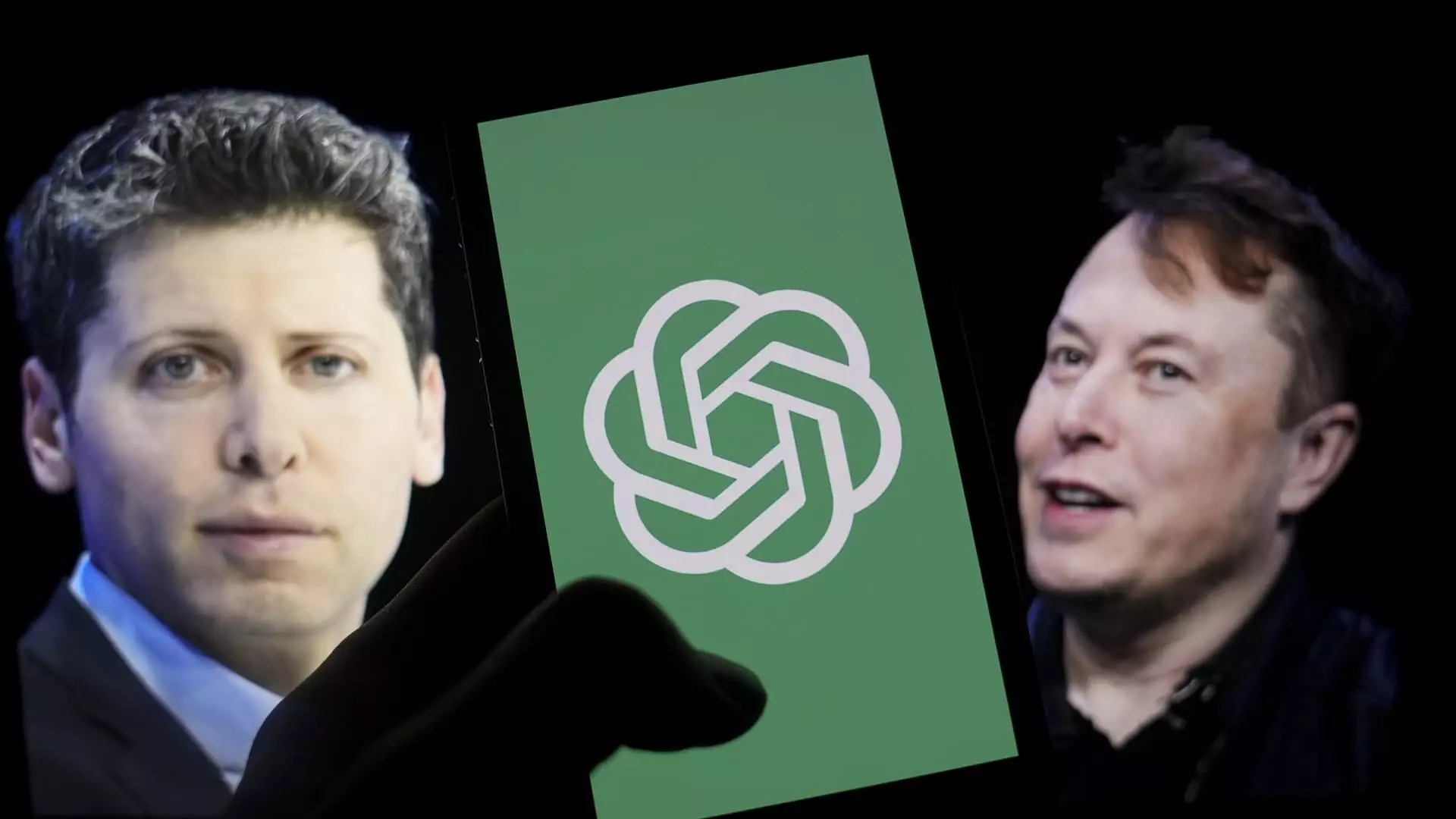In a dramatic twist within the rapidly evolving landscape of artificial intelligence, Elon Musk has taken a stand against OpenAI’s transition toward a fully for-profit structure. Represented by renowned attorneys, Musk, alongside his AI startup xAI and former OpenAI board member Shivon Zilis, has filed a preliminary injunction against OpenAI in a federal court. This legal action is not merely about a business model; it underscores deeper issues about competition, investment capital, and the potential monopolization of the AI industry.
The crux of Musk’s legal argument hinges on allegations against OpenAI for engaging in practices that may infringe upon antitrust laws. His attorneys, led by Marc Toberoff, contend that OpenAI is not only converting into a for-profit entity but has also imposed unfair restrictions on its investors. The lawsuit cites that OpenAI, in collusion with Microsoft—a significant financier—has allegedly coerced investors into avoiding funding rival companies, including Musk’s xAI. This is not Musk’s first foray into legal confrontations with OpenAI; he initially filed a lawsuit in March 2024, only to withdraw and reissue his complaints several months later at the federal level.
OpenAI’s shift from its initial non-profit model, which it established in 2015, to a capped-profit model in 2019, has now progressed to plans for a fully for-profit corporation. This transition raises essential questions about the influence of profit motives on emergent technologies. Musk’s attorneys argue that such a conversion positions OpenAI to monopolize technological advancements and suppress competition, violating both federal racketeering and antitrust laws. They also emphasize that the alleged actions of OpenAI and Microsoft prevent rival companies from accessing essential capital, which is crucial for innovation in the AI field.
Microsoft’s substantial investments in OpenAI, totaling nearly $14 billion, have come under scrutiny amid these proceedings. Reports indicate that Microsoft anticipates recording considerable losses, hinting at volatility within its investments. Furthermore, the intertwining of Microsoft’s investments with OpenAI’s operational strategies signals a potentially problematic dependency that could inhibit healthy competition in the AI market. The Federal Trade Commission (FTC) has begun inquiries into the consolidation of power among major players in AI, signaling governmental concerns about marketplace fairness and competition.
Musk’s legal team argues that the cooperation between Microsoft and OpenAI constitutes a “group boycott” that systematically hinders new players, like xAI, from entering and thriving in the AI market. This accusation raises alarm bells regarding the tactics employed by dominant firms in tech industries—strategies aimed at securing a competitive edge at the expense of innovation and equitable market access. The lawyers’ assertions that OpenAI operates as a “Frankenstein” entity, constructed to serve the financial interests of its backers, encapsulate the conflicts between profit-driven motives and the ethical considerations surrounding AI development.
The generative AI market is projected to explode into a $1 trillion industry within a decade, a statistic underscoring the stakes involved in this legal battle. As competition intensifies, with newcomers such as xAI and established tech giants like Google entering the fray, the question arises: how will these dynamics affect the future of AI innovation? Musk’s xAI, launched in mid-2023, is already carving its niche with the introduction of Grok, its own chatbot, and a projected $50 billion valuation, aiming to acquire significant resources, including 100,000 Nvidia chips.
As this legal saga unfolds, the implications extend beyond Musk, OpenAI, and Microsoft. The outcome of this case could set significant legal precedents concerning business practices in the AI sector. It could potentially reshape how tech companies structure their partnerships and investments while emphasizing the need for regulations that foster competitive environments. The ongoing scrutiny by the FTC underscores a critical turning point where market dynamics could significantly alter based on legal determinations surrounding corporate conduct in burgeoning sectors.
Musk’s legal actions against OpenAI illustrate a larger battle for the future of artificial intelligence—a future that could either spiral into monopolistic practices or thrive through competitive innovation. As AI continues to permeate every aspect of our lives, ensuring that the marketplace remains robust and dynamic is essential. The resolution of this case could serve as a pivotal moment for the industry, encapsulating the delicate balance between innovation, ethics, and market power in the world of AI.

